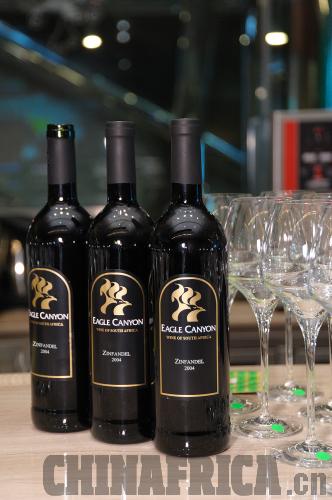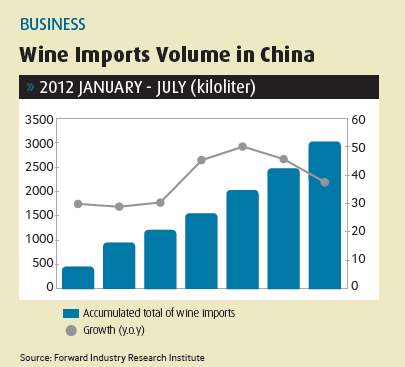|
 |
|
Eagle Canyon wines has been ranked in Wine in China magazine's top 100 wines list for two consecutive years |
"In fact, South Africa makes very good quality wines. The country is famous around the world for its 350-year-old wine-making history," Liu said. "Chinese people are not familiar with South African wines now, but the market has quite a lot of potential."
"As the domestic wine market continuously expanded, many new vineyards emerged in China, but most of them soon turned to other business. This kind of behavior does not fit with our company's philosophy."
Eagle Canyon wines are all produced by a wine estate in Stellenbosch that has a 330-year history. Liu said that he chose this particular vineyard and wine producer because its long history ensures the quality of wine. Due to Liu's efforts, these wines began to appear in Chinese five-star hotels, upscale clubs and even in Chinese homes.
In China, Eagle Canyon's target market also includes state-owned enterprises and other large enterprises that make group purchases. According to Liu, these enterprises have strict standards when it comes to wine quality, so their purchase of Eagle Canyon imports is an affirmation of the company's quality products. Meanwhile, Eagle Canyon has also become prominent in the world of wine competition, being ranked in Wine in China magazine's top 100 wines list for two consecutive years.
Stable growth
China's market for imported wine continues to expand, bringing with it increasingly fierce competition. According to statistics, in recent years, as wine culture and Western ideas of consumption have become popular in China, consumer demand and consumption capacity have continued to rise, and wine imports have grown rapidly. According to statistics from the Forward Industry Research Institute, in July 2012, Chinese wine imports had a total value of $5.2 million, an increase of 105 percent year on year. In 2012, monthly average imports amounted to over $4 million. Throughout 2012, wine imports maintained an incredibly high growth rate, with a lowest monthly growth rate being over 29 percent.
 "Our company continues to focus on pursuing stable growth, without blindly pushing to grow too quickly or build up excessive profit margins," he said. "I see building the brand as a core value, and I hope to promote South African wines through superior branding." "Our company continues to focus on pursuing stable growth, without blindly pushing to grow too quickly or build up excessive profit margins," he said. "I see building the brand as a core value, and I hope to promote South African wines through superior branding."
Liu contends that the Chinese Government can attract more high-quality wines at fair prices by sharply cutting tariffs. In his opinion, the present wine tax, which can be up to nearly 50 percent, is a major obstacle for foreign companies wishing to enter the Chinese market.
He also believes that trade between China and South Africa is beneficial to both countries. South Africa produces a lot of other high-quality goods besides wine, such as aloe cosmetics and superior fruit juice products. These products would definitely be popular in China. Meanwhile, South Africa's government should further open the nation's economy to attract Chinese investment, which would benefit its people. |